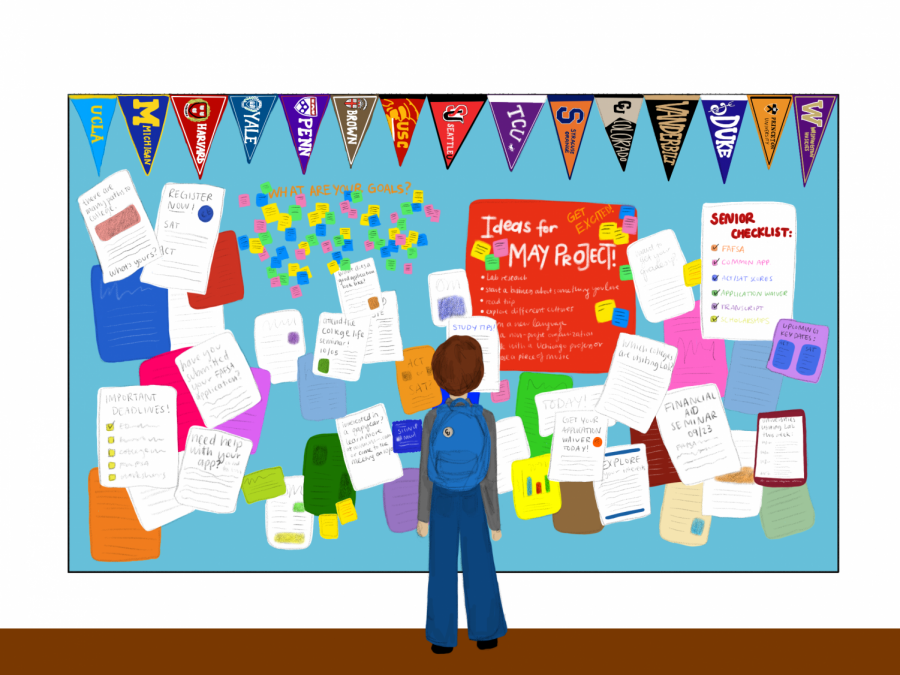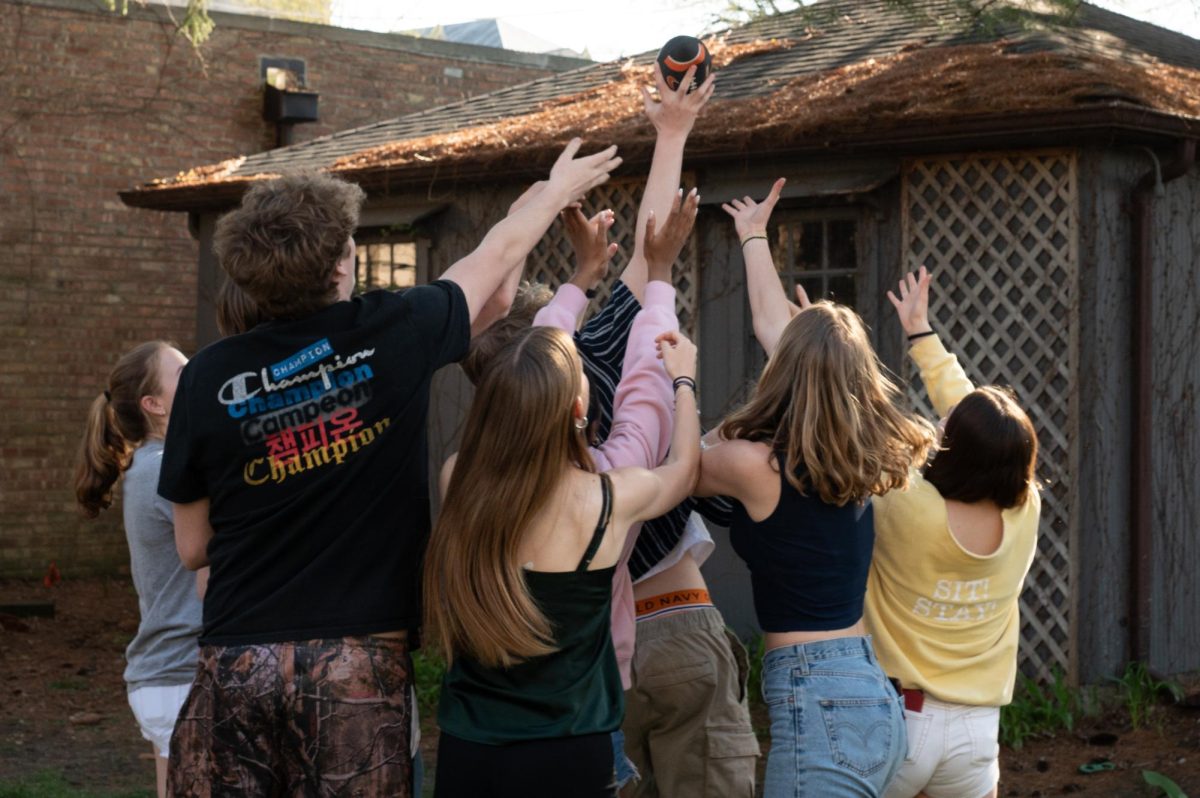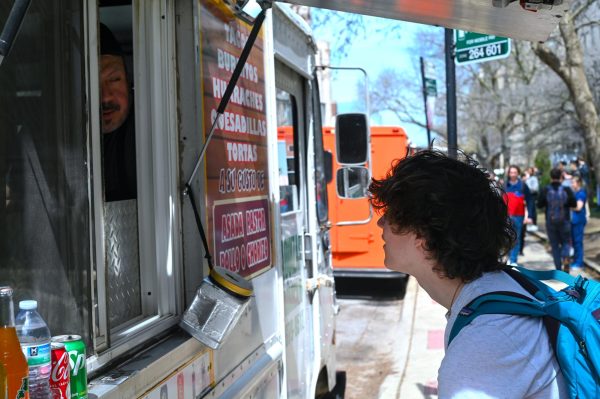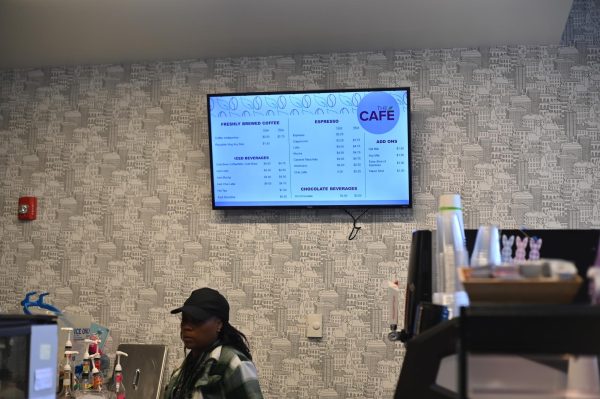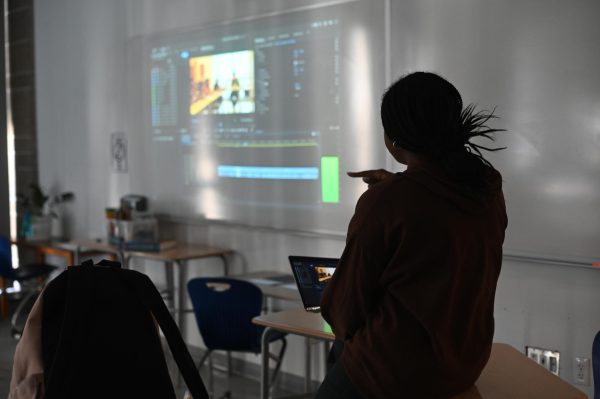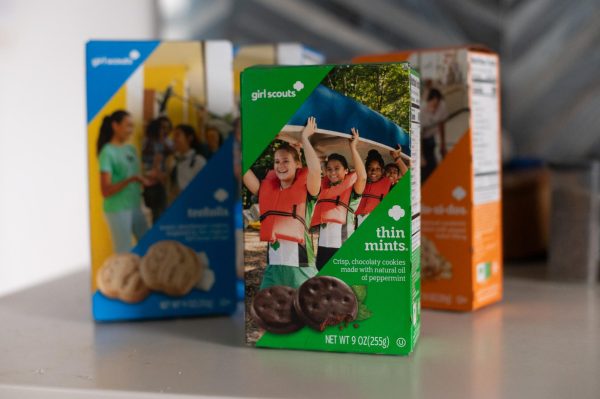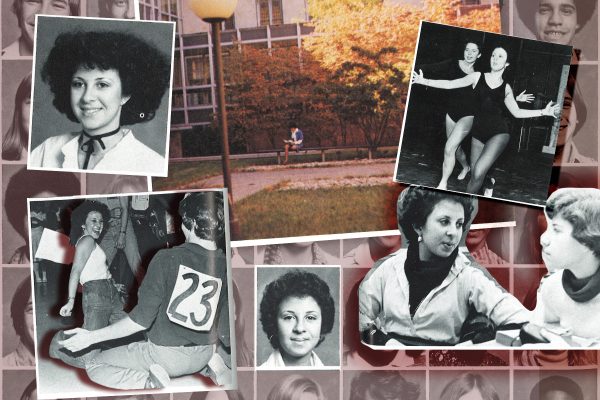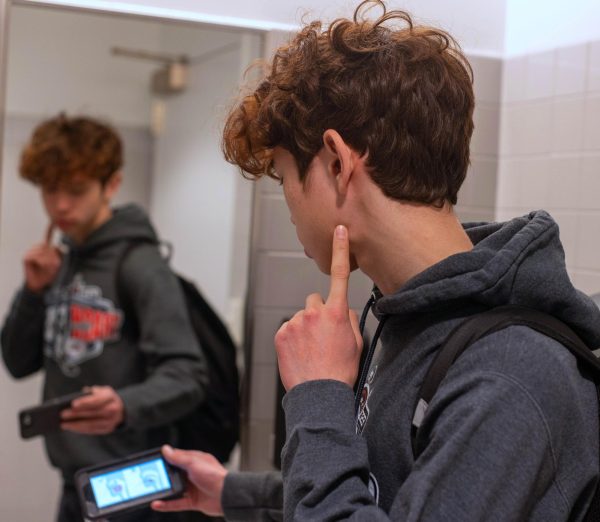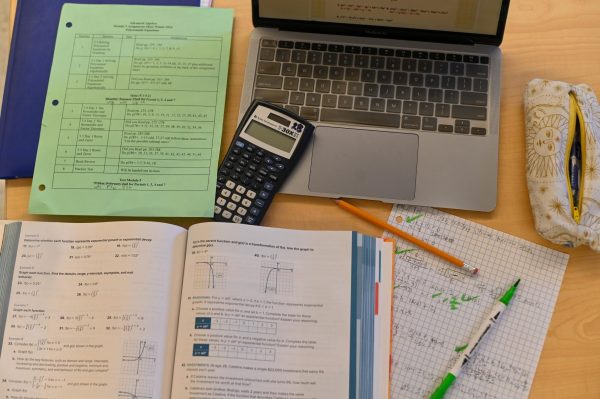Juniors and seniors tackle college applications amid pandemic
The graduating classes of 2021 and 2022 must learn to tackle college applications during global pandemic.
October 20, 2020
Writing essays, submitting test scores and visiting colleges — it’s the time of year again when seniors apply to college. However, this year seniors dealt with circumstances like no other.
With postponed test dates, canceled extracurriculars, virtual college visits, and seemingly endless amounts of unstructured time, seniors and juniors have been forced to adapt their college preparation process to the challenges of coronavirus safety measures.
According to college counselor Patty Kovacs, the college application itself is mostly the same this year compared to previous years with a few exceptions. Standardized testing requirements have changed the most since the pandemic as many students have lost the opportunity to take the SAT or ACT.
A FairTest report indicated that more than half of all U.S. colleges and universities have adopted a test-optional admission policy.
Senior Hunter Tyndall said his SAT test date was canceled three times before he finally was able to take the test on Oct. 3.
Junior Will Trone said he plans to take the SAT but will wait until later in the school year to register.
“I know that seniors who want to take it need right now to take it, so I don’t really want to take spots away from seniors,” Will said.
Additionally, the Common Application now provides seniors an opportunity to respond to a question asking how the coronavirus has impacted their lives.
A key component of college applications for seniors is requesting recommendation letters from teachers. With most of the 2019-20 school year in person, some 2021 seniors found they had sufficient time to develop a connection with teachers.
“I feel pretty good about it because I asked my teachers for my junior year, and we already established an in person relationship, and we knew each other pretty well,” senior Itzel Rojas said considering her recommendation letters.
However, junior Brent Pennington said it has been difficult building a connection with his teachers with the current year starting off with distance learning.
“I’m pretty much doing everything I can to try to get close to teachers and try to understand teachers and try to be interested in their subject,” Brent said.
Brent noted that another challenge for many juniors is finding opportunities to demonstrate excellence in extracurricular activities.
Although he has been able to continue competing in the debate team, he has lost many opportunities to exhibit his public speaking skills.
“Some skills revolve around being in person, like theater, for example, or public speaking,” Brent said. “Those are qualities that though can be on Zoom or can be digitized are preferably done in person, and as a result, it’s far more difficult to demonstrate just ability in those areas.”
Although distance learning seemingly provides seniors with more time to complete their applications, some seniors have found it difficult to use their unstructured time effectively.
“In a way, it’s made it less difficult because you have a lot more time, but the main thing that’s difficult about it is that having a lot more time makes it so that you have a lot of free time to yourself,” senior Alex Bal said. “So it’s hard to really set up like a structured way to study and do your applications and everything.”
Having to use time for college applications on top of managing U-High’s typical workload and attending classes, some seniors are finding that their hours of screen time are adding up.
Itzel said she sometimes spends 18 hours a day in front of a screen.
“Even with trying to set some time aside, it still comes a struggle because I’m staring at a screen the entire time, and it just feels like the time is being dragged on,” Itzel said.
Although distance learning presents challenges, some seniors have found that college visits have become more convenient. Many colleges have expanded their virtual tours to provide seniors a sense of the campus without an in-person visit.
Itzel found that she is often able to explore colleges while multitasking on other work.
“I listen to the college tours or the webinars and look at all of the virtual stuff as I’m probably doing an assignment for another class that isn’t as engaging mentally,” Itzel said.
Although it is easier to demonstrate interest in college visits, Alex said the convenience comes at the cost of not being able to fully get a feel of college campuses.
“They’re generally not that helpful,” Alex said. “It’s kind of just a thing where you just have to go, so like it looks like you’ve done it, but it doesn’t really teach you that much about the school, and you can’t really get a sense of like where it is.”
It’s kind of just a thing where you just have to go, so like it looks like you’ve done it, but it doesn’t really teach you that much about the school, and you can’t really get a sense of like where it is.
— Alex Bal
Ms. Kovacs predicts that in the future colleges may continue to prioritize virtual visits for seniors, and the traditional “road warrior” admission officer role of visiting high schools may become obsolete due to the higher expenses.
“It’s cheaper for the colleges to have college reps doing it from their home, and I’m wondering how long the road warrior position is going to last when they see how cost effective it is because all of these colleges have taken a hit,” Ms. Kovacs said, referring to college budgets.
Considering the college application process in future years, Ms. Kovacs anticipates many schools will remain test-optional even after distance learning ends.
“They’ve really used this time to examine their own values,” Ms. Kovacs said. “Some of them are really excited about the forced opportunity to go test optional because they’ve been thinking about doing it anyway, and this is just going to move things a little bit faster.”
For Hunter, the key is to stay on task especially on Wednesdays and weekends when there are no classes.
“As long as you’re on top of your things, it’s not hard,” Hunter said. “There’s really no reason why you shouldn’t be getting help if you need it.”



